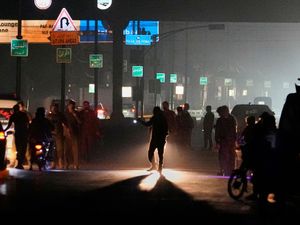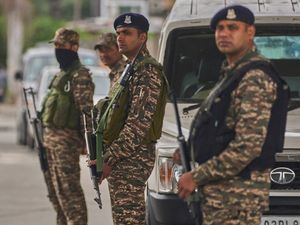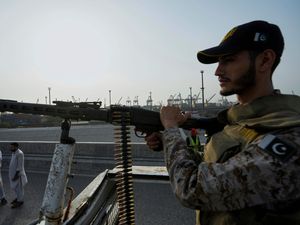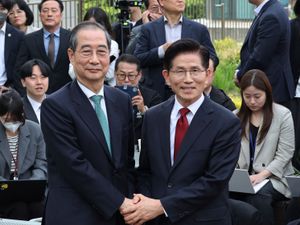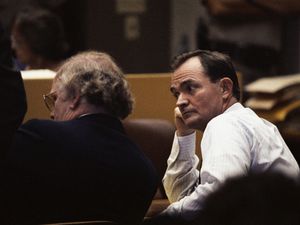Israel strikes Beirut for first time since ceasefire ended war with Hezbollah
Associated Press reporters in Beirut heard a large boom and witnessed smoke rising from the area that Israel’s military had vowed to strike.
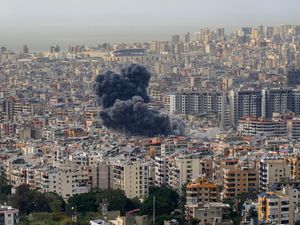
Israel has launched an attack on the Lebanese capital, Beirut, for the first time since a ceasefire ended the latest Israel-Hezbollah war in November.
Associated Press reporters in Beirut heard a large boom and witnessed smoke rising from the area that Israel’s military had vowed to strike.
Israeli Prime Minister Benjamin Netanyahu said his military’s strike on the southern suburbs of Beirut marked an “example” of Israel’s “determination” to act against its northern neighbour.
“We will not allow firing on our communities, not even a trickle,” Mr Netanyahu said in a statement on Friday.
“We will continue to vigorously enforce the ceasefire, we will attack everywhere in Lebanon, against any threat to the State of Israel, and we will ensure that all our residents in the north return to their homes safely.”
After the strike, Israel’s army said it attacked a Hezbollah drone storage facility in the area of Dahiyeh, which it called a key Hezbollah stronghold.
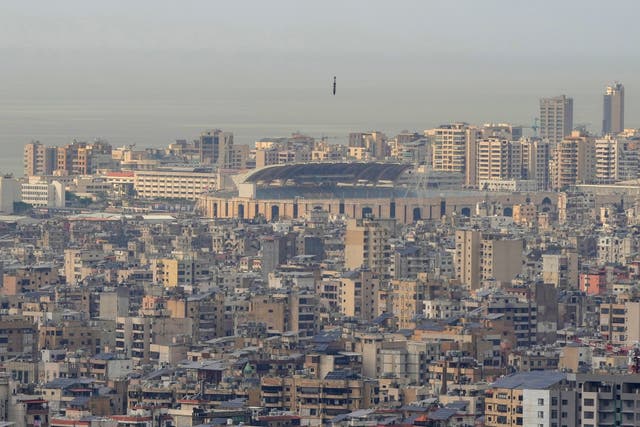
Israel said Hezbollah uses civilians as human shields.
The area struck is a residential and commercial area and is in close proximity to at least two schools.
It comes after Israel’s army urgently warned people to evacuate parts of a Beirut suburb on Friday as it vowed to retaliate against strikes which it said were launched from Lebanon into northern Israel.
Lebanon’s government ordered all schools and universities in Beirut’s southern suburb of Hadath to close for the day.
In some parts of the southern suburbs, shooting could be heard warning people to leave their homes and many residents were seen fleeing the area in cars and on foot.
A strike on Beirut would be the first time since a ceasefire took hold on November 27 2024, between Israel and the Hezbollah militant group, although Israel has struck targets in southern Lebanon almost daily since then.
Israel’s military warned people in a post on X, formerly Twitter, in Arabic to evacuate buildings in Beirut’s southern suburbs, where Hezbollah has a strong presence.
Hezbollah began launching rockets, drones and missiles into Israel the day after Hamas’s October 7 2023 attack out of Gaza ignited the war there.
The Israel-Hezbollah conflict boiled over into all-out war in September as Israel carried out waves of airstrikes and killed most of the militant group’s senior leaders.
The fighting killed more than 4,000 people in Lebanon and displaced about 60,000 Israelis.
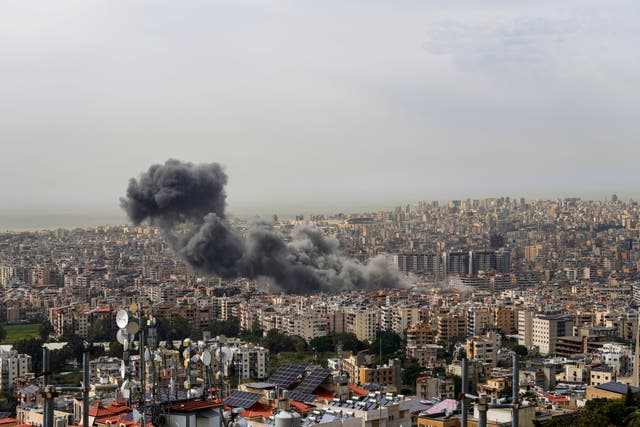
Israeli forces were supposed to withdraw from all Lebanese territory by late January under the ceasefire deal.
The deadline was extended to February 18, but Israel has remained in five locations in Lebanon across from communities in northern Israel.
Meanwhile, Israel has carried out dozens of airstrikes on southern and eastern Lebanon, saying it attacked Hezbollah, while continuing drone attacks that have killed several members of the militant group.
Last week, Israeli airstrikes on several locations in Lebanon killed six people.
The UN special co-ordinator for Lebanon, Jeanine Hennis-Plasschaert, said the exchange of fire was deeply concerning.
“This is a critical period for Lebanon and the wider region,” she said on Friday.
According to an Israeli official who was not authorised to speak to the media, Israeli Prime Minister Benjamin Netanyahu was meeting top security officials to discuss an impending strike on the capital.
The escalation comes as Israel ended its ceasefire with Hamas by launching a surprise wave of strikes that killed hundreds of people in Gaza. Earlier this month, Israel halted deliveries of food, fuel, medicine and humanitarian aid to Gaza’s roughly two million Palestinians.
Israel has vowed to escalate the war until Hamas returns 59 hostages it still holds — 24 of them believed to be alive. Israel is demanding that the group give up power, disarm and send its leaders into exile.
Hamas has said it will release the remaining captives only in exchange for Palestinian prisoners, a lasting ceasefire and an Israeli withdrawal from Gaza.
Israel’s defence minister said on Friday that if there was no peace in Israel’s northern communities there would be no peace in Beirut either.
Hezbollah denied firing the rockets at northern Israel, and accused Israel of seeking a pretext to continue attacking Lebanon.
Speaking from Paris, Lebanon’s President Joseph Aoun said the strike on a Beirut suburb was a continuation “of Israel’s violations of the agreement” that was sponsored by France and the US.

